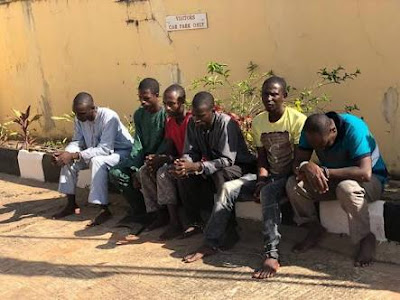Latest Reality Blog is a legal blog where you are updated on online latest news, gist, entertainment, events, motivational text, and genue articles.
A Makurdi High Court has issued an interim order restraining the Inspector General of Police (IGP), Ibrahim Idris, from prohibiting or shutting down offices of the Benue State Livestock Guards in any part of the state.
The Presiding Judge, Justice Austine Ityonyiman, in his ruling on Thursday also restrained the Benue State Commissioner of Police, Okon Ene, from preventing officers of the Livestock Guards from carrying out their legitimate functions pending the determination of the motion on notice brought before the court.
According to the judge, the guards were implementing the state Open Grazing Prohibition and Ranches Establishment Law.
The Judge granted the motion brought by the Counsel to the Benue State Government, Mr Douglas Pepe, who prayed the Court to restrain the Nigerian Police whom he stated where acting outside the scope of their constitutional mandate.
Mr Pepe had argued that the Livestock Guards was a creation of the law and the body was carrying out its functions as stipulated by the legislation establishing it.
After listening to the argument of counsel to the Benue State Government, and carefully perusing through the affidavit in support of the motion, the Judge was convinced that there was a need to grant the application pending the determination of the motion on notice.
The Judge thereafter adjourned the case to November 23, 2018, for the hearing of the motion.
Reacting to the restraining order, the Benue State Attorney General and Commissioner for Justice, Barrister Michael Gusa, said the Samuel Ortom administration is operating based on the rule of law, and due process.
He expressed surprise that the police whose duty is to help the government to enforce laws were seeking to proscribe a law legitimately enacted by a state.
Gusa reaffirmed the determination of the State Government not to be discouraged in pursuing what is in the interest of people of the State.












